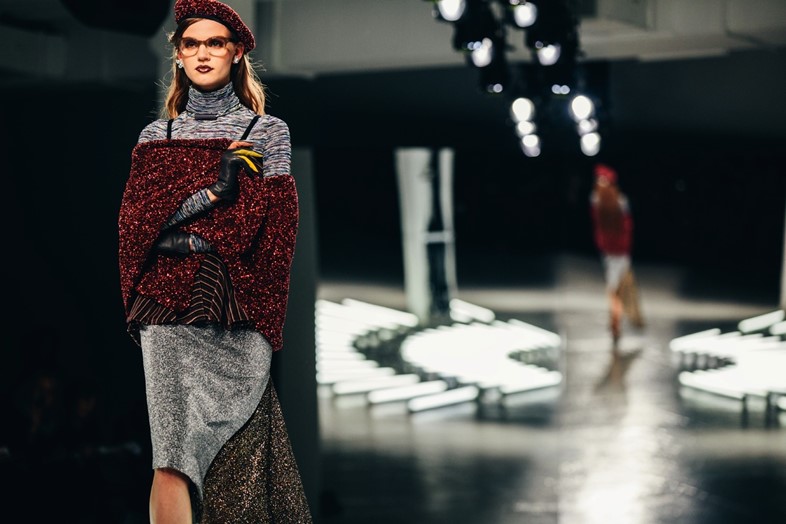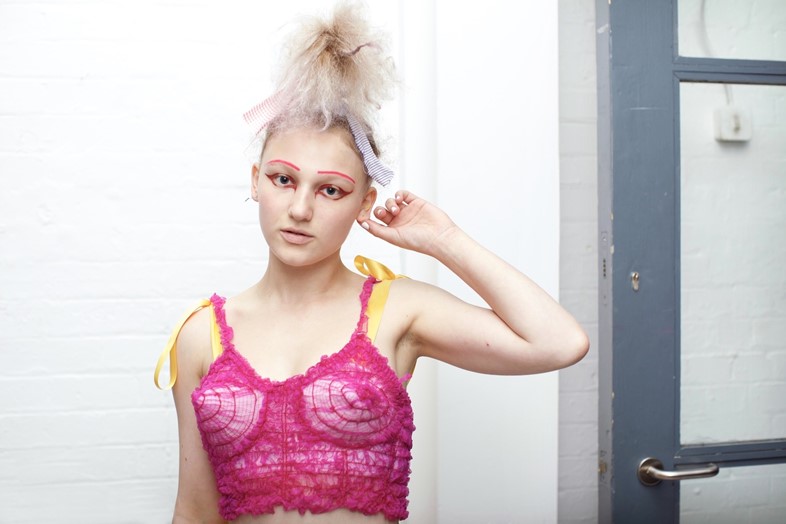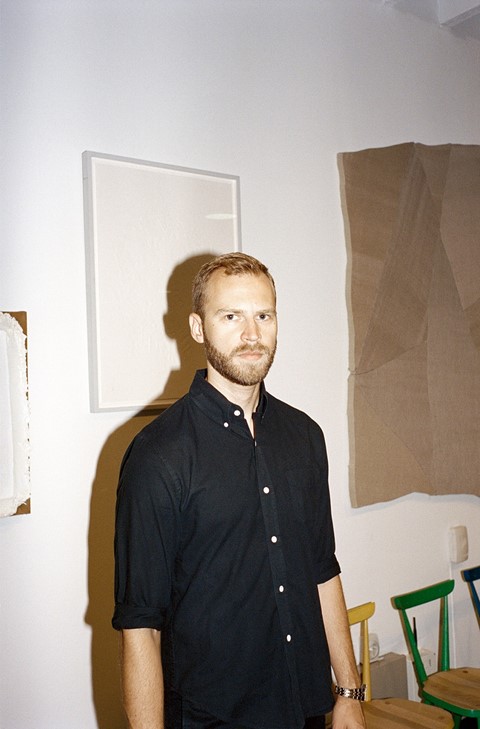In the first of our series on PR Insiders, Kin Woo meets the founder of Black Frame, Brian Phillips
When filling out his college application for Columbia University, a teenage Brian Phillips listed (Harper Bazaar’s legendary editrix) Liz Tilberis as the person he most aspired to be. Ten years after founding Black Frame – the ever-expanding hive of creativity that represents the varied likes of Rodarte, Opening Ceremony, Meadham Kirchoff, Delfina Delettrez and André Balazs’ hotel empire – the success of his company comes down to how he approaches the PR game with an editor’s eye. He says, “I think it kind of goes back to how I wanted to be a magazine editor, but that wasn’t how I ended up finding that expression. But I think I have really always thought of those principles, in terms of what the company are presenting; in terms of editing a mix and what does this company represent in terms of content standpoint.”

Moving from California to New York for university in 1998, Phillips would sneak into fashion shows with fellow Californian transplant, Humberto Leon (of Opening Ceremony) and went on to intern at Paper magazine and then later at Visionaire – an experience he found eye-opening. “You had Mario Testino and Inez and Vinoodh coming by the office – the best of the best at the time. It really felt like a high for me.” It was also where he first came into contact with Hedi Slimane – then the ground-breaking designer of Dior Homme – who would go on to become his first client when he set up Black Frame at the age of twenty-four. “I think Hedi was the first designer from a global perspective that I really thought of as my idol,” he recalls of working with him during the heady years of his Dior Homme reign between 2004 to 2007. “It was such an interesting time because it was really like dealing with this brand that everybody wanted a piece of. I think the thing that Hedi had, which was really interesting from a PR standpoint, was that he was super-selective about what it is he wanted to do; really focused on quality over quantity. It was never about pushing things that didn’t make sense, just for the sake of it. This was about pausing and considering, and saying no; taking a long term path to something. That has been an approach that has really stuck with me.”
"That's what I love about it – that the things that we are doing bring opportunities that we just didn’t think about. It’s very planned in some ways, but there’s always room for the unexpected" — Brian Phillips
In the decade since he’s started the company, he’s seen his clients and friends like Humberto Leon and Carol Lim and the Mulleavy sisters of Rodarte grow from outsiders to become part of the fashion establishment. He says, “I get so excited about doing things with them, because it is building upon this legacy that they have already built. With Rodarte, when I think about that ten year book, it is so rich. It’s full of people that you would never normally hear of in the context of a fashion brand: Frank Gehry, John Baldessari, Catherine Opie, Darren Aronofsky, you know, it’s just super exciting, and you can’t really ask for more than that.” Phillips also takes this specialised boutique approach to his dealings with a huge multi-national brand like Nike. “It was more important to me than anything to be able to work at both ends of the spectrum. If you’re only working with a small emerging brand, you don’t get a sense of the scope of what’s possible. Aside from that, Nike is a dream client. It’s the best brand, maybe in the world, from my point of view. It never gets boring, and it is always a challenge. Plus, it’s global. But, we come at it from a very specific point of view: what does this brand mean in terms of the culture of fashion, of style, of design.”

Interdisciplinary cross-pollination is key to Phillips who has taken to collaborating with creatives outside the fashion industry – from working on Spike Jonze’s Oscar winning ‘Her’ campaign, the Frieze art fair in New York and even the Bolshoi Ballet’s principal dancer, David Hallberg. “It’s daunting, because you’re sort of saying ‘How am I going to do this, I don’t know a thing about ballet?’ But then you learn. It was really him; his level of ambition, his level of drive, and I personally respond to people like that. It’s a different expression for me, this kind of creativity.”
Also different is how Black Frame are branching out from the realms of PR to encompass art direction, branding and video production in a new division called Framework, catalysed when Phillips brought on Toilet Paper and Roe Ethridge to work on campaigns for Kenzo and recently commissioned Ryan McGinley to shoot a campaign for Monique Péan. “It’s been part of the DNA of what we have been doing all along; co-producing these short films with Rodarte, working with Delfina on selecting the right photographer and collaborators for her project. It started to get to the point where I thought this is another business unto itself, and I wanted it to be something that we can offer to our clients, but that we can also offer to other people that maybe we don’t represent in PR.” Looking back over the last ten years since he started Black Frame, Phillips likens it to “a laboratory to experiment in.” He muses, “It’s super personal- It’s stuff that I like. Not just me, but also the team and what comes out of our work. It’s literally like the garden that grows. I think that’s kind of what I love about it – that the things that we are doing bring opportunities that we just didn’t think about. It’s very planned in some ways, but there’s always room for the unexpected. I think we will keep doing that until that stops happening. I like being unafraid to try things.”
Next week Insiders will interview Adam Iezzi of AI.
Text by Kin Woo
